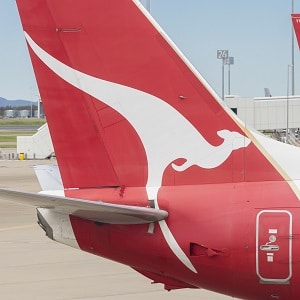Australia: Qantas Frequent Flyer hits the big time  With the news that Air Canada is exiting its partnership with Aeroplan to launch its own loyalty program, the economics of airline loyalty programs have become front-page news to industry observers. An inside look at the profitability of Australian carrier Qantas Airways' Frequent Flyer loyalty program perhaps casts Air Canada's decision in an obvious light - because the Qantas program, once seen as a problem child of the airline, is now printing money. With airline loyalty programs having become such big businesses, however, we have to wonder: is there still room for these programs to do what they were designed to do - build customer loyalty? By Rick Ferguson The Bloomberg article is chock full of juicy numbers that reveal just how profitable Frequent Flyer has become. To wit:
With the news that Air Canada is exiting its partnership with Aeroplan to launch its own loyalty program, the economics of airline loyalty programs have become front-page news to industry observers. An inside look at the profitability of Australian carrier Qantas Airways' Frequent Flyer loyalty program perhaps casts Air Canada's decision in an obvious light - because the Qantas program, once seen as a problem child of the airline, is now printing money. With airline loyalty programs having become such big businesses, however, we have to wonder: is there still room for these programs to do what they were designed to do - build customer loyalty? By Rick Ferguson The Bloomberg article is chock full of juicy numbers that reveal just how profitable Frequent Flyer has become. To wit:
- Qantas CEO Alan Joyce expects the loyalty program's revenue to double by 2020.
- The program is so profitable that some analysts predict it could drive Qantas' stock price to 50 percent or higher growth.
- The program includes 12 million members - or one out of every two Australian households.
- Analysts estimate the loyalty program's value at nearly A$4 billion.
- The program's operating profit margin stands at nearly 25 percent.
- More than a third of Ausralian credit-card spend - totalling A$303 billion in 2016 - is on Qantas co-branded credit
- Members earned more than 120 billion points and redeemed 4.9 million flights in 2016.
- By 2020, the loyalty division will be Qantas' biggest contributor to profit.
Crikey! So important and entrenched has the program become in Australian consumers' lives that it may even be the leading brand in the Qantas/Frequent Flyer partnership. Money quote from Bloomberg:
"Rather than function solely as a reward for flying on Qantas, the program is close to being the main draw, said Paul Nelson, founder and managing director of Sydney-based consultancy BrandMatters Pty. The appeal of membership is enough to stop many flyers shopping around for cheaper flights, he said. 'They've taken something that's seen as being quite secondary and made it almost primary in decision-making terms,' Nelson said by phone. 'It's gone from the dog wagging the tail to the tail wagging the dog.'"
The Bloomberg piece also points out the divergent fortunes of Frequent Flyer, which remains a core part of Qantas after the carrier flirted with spinning off the program in 2012, and Canada's Aeroplan program, which was spun off from Air Canada a decade ago, and which is now on life support after the airline's announcement that it would exit the program in 2020. Now Qantas is printing money, while Air Canada must invest millions to rebuild its own program. Meanwhile, Aeroplan parent company Aimia's market cap is down to around $500 million after its stock crashed last week. The moral of this story: If any airline was considering spinning off its loyalty program in the Aeroplan model, you can bet they are no longer doing so. So long as the carrier loyalty programs continue to lay golden eggs, they aren't going anywhere. Rick Ferguson is CEO and Editor in Chief of the Wise Marketer Group.




